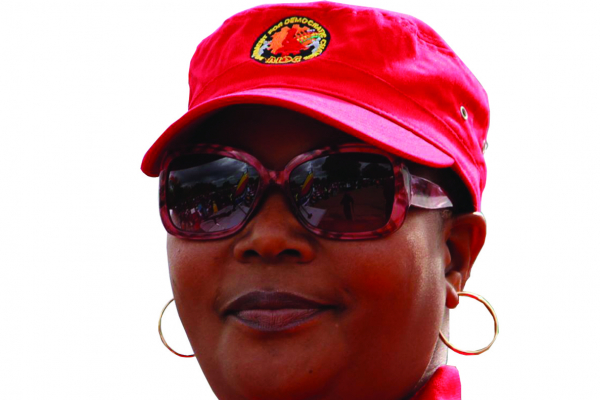
PHYLLIS MBANJE
WOMEN were pleasantly surprised last Sunday (which happened to be International Women’s Day — IWD) when several fuel stations in Harare gave them first priority to fill up their vehicle tanks.
In an economy where the precious liquid has become difficult to come by, that was indeed something to smile about. It was a noble gesture that definitely eased the pressure that women face daily in balancing other roles at home and work.
But beyond this day and the whole of March in which women are honoured for their accomplishments and contributions to society, it all fades away and before long it is back to the usual grind. Gender disparities, which are largely skewed against women, resurface.
Wife bashing and shaming on social media continues as well as rape of minors. Girls still miss out on school because they do not have access to sanitary wear. Some of the girls are married off to older partners; many get infected with HIV and Aids because they cannot negotiate for safe sex. Others die during child birth because their young bodies have not matured enough to carry a baby to full term.
For many years, these celebrations have been slowly losing their essence, turning into mere fancy events during which women rights defenders congregate and give speeches. The high teas and meetings held in poshy hotels often do not include the very woman they purport to represent — the woman busy in her field somewhere in Mabee in Chipinge, or gathering firewood deep in the forests of Uzumba.
This woman has no idea that she is being celebrated. Not that it would help anyway. The issues and challenges that she encounters daily remain unknown. She soldiers on, wondering what she will use when her period comes at the end of the month.
The theme for this year’s celebrations, I am Generation Equality: Realising Women’s Rights rang empty in the face of abject poverty, suffering, domestic violence and social structures that do not and will not recognise women’s rights.
- Chamisa under fire over US$120K donation
- Mavhunga puts DeMbare into Chibuku quarterfinals
- Pension funds bet on Cabora Bassa oilfields
- Councils defy govt fire tender directive
Keep Reading
Speaking on the issue, director of the Panos Institute Southern Africa, Vusumuzi Sifile said while some milestones have been recorded in addressing the barriers to gender equality and gender equity, more still needs to be done.
“For example, the majority of southern African countries still fall short in terms of achieving or showing commitment to gender equality and equity in key leadership positions,” he said.
Sifile said Panos was concerned that 25 years since the Beijing Declaration and Platform for Action resolution to achieve gender equality, gender inequality still reigns supreme in southern Africa.
“Women continue to be pushed to the margins by social and economic systems and structures. Of concern to us is the fact that the participation of women in political leadership and public administration is low,” he said.
In 2018, Panos conducted a study that identified various political party structures and systems that marginalise women and hinder them from taking up leadership positions. The assessment confirmed that participation of women in political party leadership was very marginal.
The Panos study confirmed that political parties have written and unwritten principles, practices, laws, rules, guidelines, values and procedures that mostly disadvantage women.
These are rooted in the patriarchal culture and tradition that obtains across southern Africa, and the existence of a “glass ceiling” characterised by some “unwritten rules” or unacknowledged barriers hindering women.
However, Sifile views the IWD2020 as a reminder of the unfinished work to realise women’s rights.
“The IWD2020 is an important reminder of the important role we all have to play to achieve gender equality.
He challenged the media to continue to provide space for women’s voices, to highlight and challenge the stereotypes that disadvantage women.
“We also urge decision-makers to put in places laws, policies and other instruments to address the current barriers to the realisation of women’s rights. Civil society, traditional and religious leaders, and other opinion leaders also have a role to play in advocating for equality and the realisation of women’s rights,” he said.
Director of Women Action Group (WAG) Edna Musiiwa said organisations which pushed for women’s rights did not only focus on the IWD, but throughout the year worked hard to ensure that women are uplifted.
“We have many programmes which aim at empowering women as well as advocacy around gender equality. We are also agitating for more health services to women,” she said.
Women are often hardest hit by the crisis in the health sector which has witnessed its worst since independence. Pregnant women are still struggling to access maternal care with reports that some even give birth by the road side.
“We must not stop celebrating the IWD. It is an important time to recognise women. We are currently building a movement of women whom we will empower enough to articulate their own issues. The media will not even need us to comment, but can go to Muzarabani and the women there will be able to confidently say out their issues,” Musiiwa said.
In her message for the IWD, MDC-T president Thokozani Khupe said progress has been “agonisingly slow” for the majority of women and girls.
“Women work very hard to the extent that they are creators of wealth and yet they themselves are not wealthy,” she said.
Khupe said March 8 should be declared a public holiday to give an opportunity to every Zimbabwean to sit at home and express full gratitude to women.
“I would like to call on the Executive to speed up the processes that will lead towards the achievement of gender equality and human rights of women and girls,” she said.











